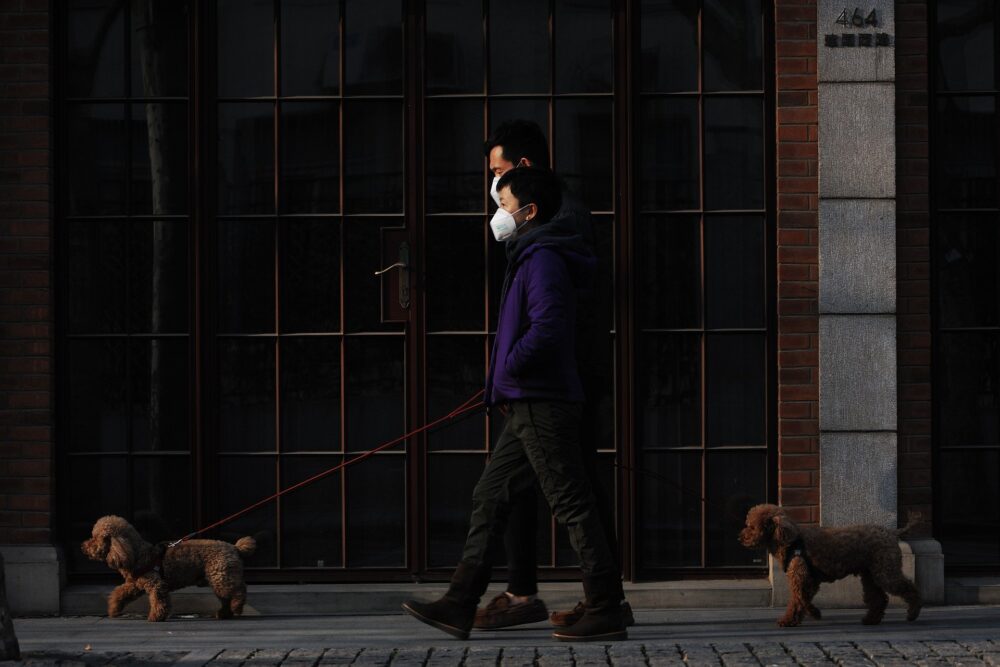Animals have long provided assistance to humans in times of great need. Countless heroic animals have saved human lives — dogs can undergo training to track missing persons, detect an oncoming seizure, or alert humans to mines underground. During the COVID-19 pandemic, animals continue to impact human lives (beyond interrupting Zoom calls). As knowledge about COVID-19 becomes clearer, it may be important to protect domestic animals just as we protect our immediate households. Domestic animals may also be saving lives in an unexpected way — by providing key support to mental health.
A study by Dr. Helen Brooks and her colleagues from the University of Manchester evaluated the role that domesticated animals can play in human social networks. Participants in this study were diagnosed with long-term mental illnesses and were under the care of community-based mental health services. The researchers used semi-structured interviews to collect information regarding the roles of individuals in a person’s social network with respect to the subject’s mental health management.
Domestic animals may also be saving lives in an unexpected way — by providing key support to mental health.
In the majority of study participants, individuals placed pets in the central, most important circle of their social network. Through qualitative surveys, the participants described their relationship with their pets as “the only thing that stayed constant,” and researchers found that participants valued “a sense of enduring trust” between themselves and their companion animals.
Additionally, pet care established an important routine that provided study participants with a responsibility that “[felt] vital for their wellbeing.” The sample used in this survey had high levels of unemployment and isolation, and participants had few similar opportunities to experience the pride associated with caring for a well-loved pet. One participant remarked that caring for the animals impacted her confidence, and another found it helped them present themselves in a more positive light. Overall, Dr. Brooks and colleagues found that pets should be considered as a main source of support in the management of mental health problems.
Other studies have also demonstrated animals’ psychological and physiological effects on humans. Animal interactions have resulted in beneficial effects for psychiatric inpatient populations through Animal Assisted Therapy (AAT). Additionally, animal interactions can have biochemical effects on humans. Researchers found that a single session of animal-assisted activity can increase immunoglobulin A, an antibody that plays a crucial role in the immune function of mucous membranes. Furthermore, a familiar pet can exhibit measurable relaxing effects on an individual, including lowered heart rate variability, decreased psychological stress, and deactivation of the middle frontal lobe, putamen, and thalamus regions of the brain. These regions are involved in executive function and reward systems.
Dr. Brooks and colleagues found that pets should be considered as a main source of support in the management of mental health problems.
How can pets provide these physiological and psychological benefits and intimate social connections? What makes our connection to our animals so great?
A team of researchers, including Sara Hayama and colleagues of the University of Hawaii, sought to begin answering these questions. Anthrozoological neuroscience, a term proposed by this research team, refers to the use of neuroscience techniques to study human-animal interaction and elucidate the mechanisms that may underlie the health effects of these interactions. The team used functional MRI procedures to view and analyze the brain responses of self-identified “pet owners” and “non-pet owners” while viewing animal images. Questionnaires were also administered to evaluate the conceptual attraction and attachment to different animal species.
Researchers found that pet owners experienced greater neural activation in the parietal and occipital regions of their brain when they reported greater attachment to their pet. Furthermore, activity in the posterior cingulate region of the brain had the most significant correlation to the attraction score given by participants for images of animals. This region is consistently involved in visual attention, recognition, and familiarity. Altogether, Hayama and colleagues noted that the modulation of human perception of companion animal photographs varied because of self-identification with pet ownership, the attraction to different animal species, and attachment to pets. This finding is a foundation for understanding how human-animal interactions can have health effects.
The World Organization for Animal Health has stated that the spread of COVID-19 is a result of human-to-human transmission, but dogs and cats (domestic and large) have tested positive for the disease following close contact with humans.
Pets have been shown to provide many benefits to their owners. Since they are so highly valued, an emerging fear among pet owners has become the safety of their animal companions amid the coronavirus pandemic. The World Organization for Animal Health has stated that the spread of COVID-19 is a result of human-to-human transmission, but dogs and cats (domestic and large) have tested positive for the disease following close contact with humans. Further studies are necessary to better understand the susceptibility of domestic animals. However, restricting pets from interactions with other people and animals from different households could help stem the spread of COVID-19 among pets and their human caretakers.
Protecting domestic animals is important to help prevent further spread of COVID-19. But even beyond being possible vehicles for disease transmission, domestic animals play a larger role in human lives. Pets have been shown to have central roles in human social circles and have psychologically and physiologically beneficial effects. Resulting from the COVID-19 pandemic, adoption numbers and fostering of pets has dramatically increased. Beyond protecting these domestic animals from disease, humans may be benefitting significantly from these new bonds.
BMC Psychiatry (2016). DOI: 10.1186/s12888–016–1111–3
Neuropsychologia (2016). DOI: 10.1016/j.neuropsychologia.2016.03.018






